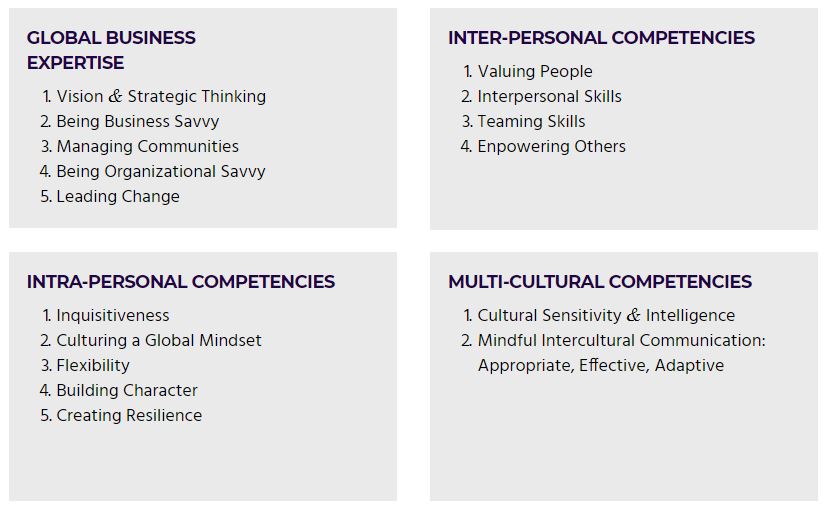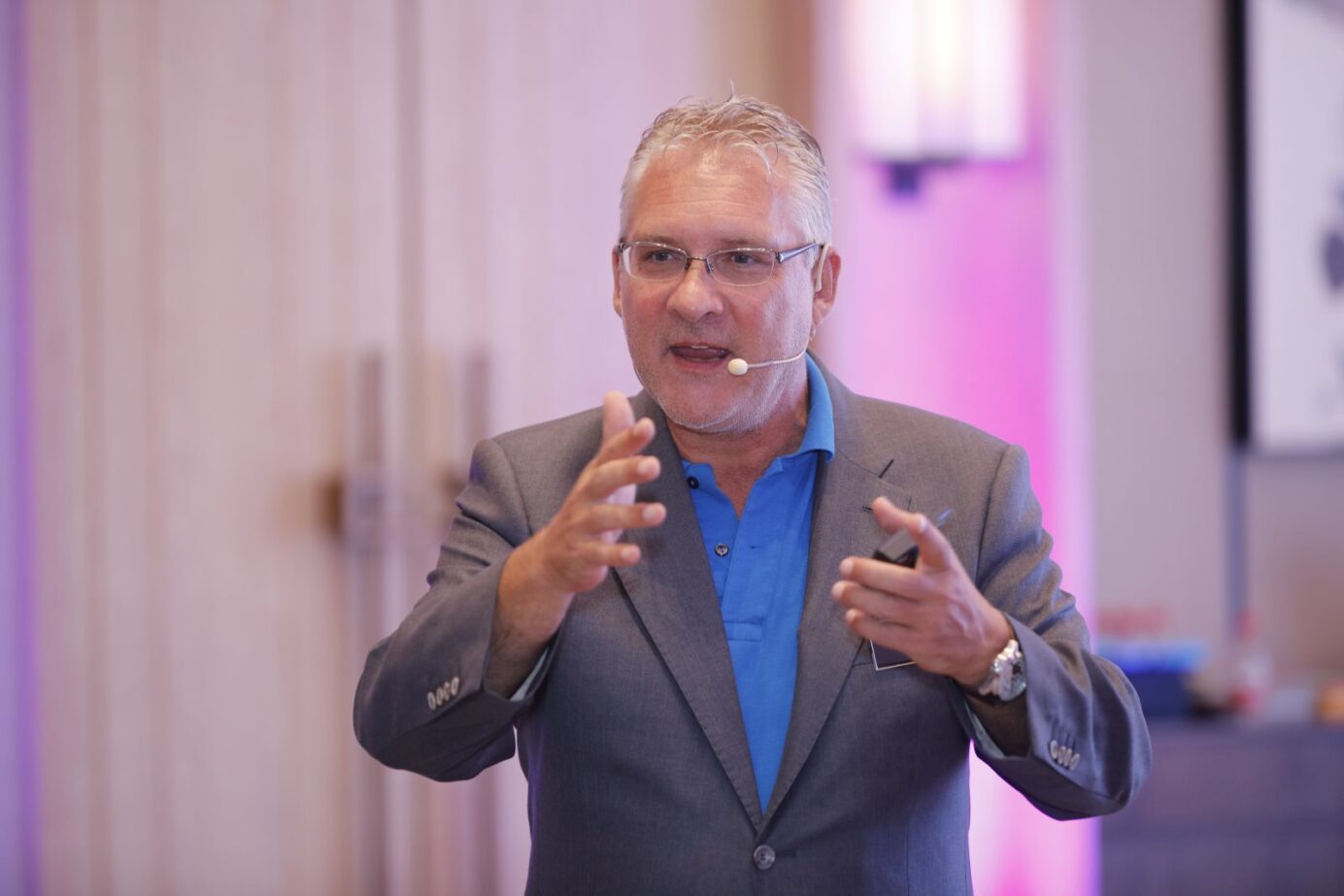“Leading a global team doesn’t automatically make you a global leader.”
~ Dr. Wolfgang Schmitz
Global leadership is trending - both as a concept and as a term. But what exactly does it mean?
How does it differ from classical leadership? What makes a leader “global”, if not the fact that they are leading a team of members from different cultures or in different locations? And why are global leaders a necessity as we move forward with globalization in the world?
Dr. Wolfgang Schmitz, founder and CEO of eurac establishment and all-around expert on global leadership, knows the answers to these questions.
We’ve sat down with Dr. Wolfgang Schmitz, interviewed him and talked about what Global Leadership is and what benefits you’ll miss out on if you don’t learn to be one.
Defining “Global Leadership”
Global leadership experts Joyce Osland and Mark E. Mendenhall define global leadership as “the processes and actions through which an individual influences a range of internal and external constituents from multiple national cultures and jurisdictions in a context characterized by significant levels of task and relationship complexity.”
The context, of course, is globalization. The advance of technology has brought us much closer and made it far easier for us to span countries and cultures. Companies, even small ones, expand internationally, and end up employing or working with people from different cultures, with different belief systems, approaches, backgrounds, goals and values — while often being situated in various locations.
Global leadership is far more complex than domestic leadership, due to the pressures and dynamics of global competition that broaden the scope of a leader’s work. A global leader must understand and be able to manage cultural differences, and allow a flexibility in his or her leadership style to accommodate them and make them work, grow and change together.
The term “global leader” may also be misunderstood to mean that a leader must be part of an organization’s upper echelon; but that is as misleading as defining someone as a global leader just because they’re leading a global team. Anyone in the public, private, and nonprofit sector who leads global change efforts is a global leader.
This includes people like Mother Teresa, Mahatma Gandhi, and Alexander the Great — people who were able to influence others from all nations and walks of life to rally behind them, adopt their world views, and affect change in the world.
Key Traits, Attitudes and Skills of Global Leaders
“Attitudes come out of our values, and those attitudes organize our skills.”
According to Dr. Schmitz, there are three levels of what it means to be a global leader:
- Traits / Values
- Attitudes
- Skills / Competencies
Our values determine the attitudes, which in turn influence the skills required to develop into a global leader, as per the above-mentioned definition. So let’s take a closer look at these three levels.

The 4 Threshold Traits of Global Leaders
Dr. Schmitz defines four key traits — or “threshold” traits — for global leaders:
- Integrity - the quality of being honest and having strong moral principles.
- Humility - the quality of having a modest or low view of one’s importance.
- Curiosity - the quality related to inquisitive thinking such as exploration, investigation, and learning.
- Resilience - the capacity to recover quickly from difficulties.
These are the very basic values, the starting point, for any person to develop into a global leader. Without these threshold traits, people hardly develop the right attitudes and skills to successfully lead a global team as a true global leader.
The “Forward-to” Attitude of Global Leaders
A person’s attitudes develop out of their values and life experiences. Our attitudes or belief-systems show the attitude and dynamic behind our values.
Dr. Schmitz categorizes successful global leaders as having a “forward-to” attitude; meaning their positive values and traits of integrity, humility, curiosity and resilience guide global leaders towards a positive attitude in dealing with challenges.
For example, instead of displaying an “away-from” attitude by not eating candy because it’s unhealthy, global leaders will approach their value of being healthy by eating fruits and vegetables because they are healthy. They pursue the thing they want to achieve — being healthy — rather than focusing on what they want to avoid — not being unhealthy.
See the difference? Rather than thinking and contemplating all the things that are preventing you from living a healthy lifestyle, focus on actually living a healthy lifestyle.
Global leaders are able to see beyond the reasons for problems and focus on finding solutions.
The 4 Key Competencies of a Global Leader
Global leaders’ most important competencies and skills can be divided into two categories:
- The technical and professional skills and competencies required to lead a team in a company- or work environment, like the ability to make ethical decisions, leading change, influencing stakeholders, architecting and building community.
- The skills and competencies associated with connecting and relating with people who differ culturally from each other and the leader, like (mindful) communication, the ability to create and build trust, as well as multicultural competencies, especially when forming a team.
To this day, companies, universities and academies tend to focus on developing a leader’s technical and professional skills and competencies. But to be a successful global leader, your skills and competencies must also encompass the second category.
To include both global leadership categories, eurac defines four core competencies as the groundwork of true global leaders:
- Global Business Expertise
- Intra-Personal Competencies
- Inter-Personal Competencies
- Multi-Cultural Competencies
These four competencies are based on a person’s values and attitudes, as described above and shown here:

Can Anyone become a Global Leader?
According to Dr. Schmitz, anyone can become a global leader — as long as they’re willing to work on self-improvement and ‑development, and possess a forward-to attitude.
This developmental readiness is key, and some people are better equipped with it than others. They are able to “move the needle further”, as Dr. Schmitz puts it, because they possess an intrinsic incentive to develop, rather than receiving that stimulus extrinsically from outside influences.
One thing is certain: whether you’re born as or make yourself into one, being a global leader is a lifelong process of learning, practice and transformation.
The 4 Main Challenges of Global Leadership
Dr. Schmitz sees four major challenges for global leaders today.
1. Managing the (global) complexity
Today’s global complexity, with its interdependence and ambiguity, requires an intricate process of collaboration, discovery, architecture and system thinking.
2. Leadership effectiveness
Leadership effectiveness is the biggest challenge in leading organizations today, no matter in which country they’re located, or whether they’re located around the world or not. They always have a specific set of leadership effectiveness challenges in common.
Developing managerial effectiveness
Global leaders face the challenge of developing the relevant skills to manage people, projects and processes, like time-management, priority-setting, strategic thinking, decision making, as well as effectiveness and efficiency at work.
Inspiring and motivating others
Global leaders understand the value of a motivated team that feels inspired to work towards a common goal. Motivated employees are more satisfied with their jobs and enjoy working at their company. But being the inspiring, motivating leader they need can be challenging.
Developing employees
Today’s managers are no longer just delegators. As a global leader, a challenging part of your job is also mentoring and coaching your team or employees.
As Dr. Schmitz puts it with a twinkle in his eye: “As a global leader today, you are kind of a servant to your employees. In the past, your assistant brought you coffee; today, the global leader brings the coffee to their team.”
Global leaders today take on a service role as well as a leadership role. They’re responsible for creating the right settings for their employees to grow and develop, and to motivate them to do so. Global leaders are in charge of the development of their employees, so that they, in turn, can do a better job and achieve their goals.
Leading a team
The most obvious factor of leadership effectiveness is the leading of a team itself. The challenge here is in team building, development and management. A global leader has to provide the team with the support they need, lead a big team successfully, or take over a new team. Or even take over an already formed team that has been working well together for some time.

3. Guiding change
Driving and guiding a global team — any team, really — through change is always a challenge. A global leader must manage, mobilize, understand and lead the team, know how to mitigate the consequences and overcome resistance. And he must do this continuously. As Heraclitus said, “the only constant is change”.
4. Managing internal stakeholders
A global leader doesn’t have only his team to think about, but the internal stakeholders, i.e. his managers, board of directors, investors, including — yes — his employees and team members. A global leader must manage these relationships, as well as the politics and image perceptions that come with them. He must gain support from managers as well as other departments, groups and individuals.
Why multi-national companies — and the world — need global leaders
Companies today exist in a world of complex social, economical and political dependencies. This creates a lot of challenges. Of the 52% of multi-national corporations planning to expand their corporations, only 16% report having enough global leaders to fill these critical roles.
Globalization has changed our work-environment. Corporations today lack the skills to adequately meet the demands of a more and more connected world. Traditionally educated, domestic leaders struggle to deal with these kind of complexities.
In addition to ethical and cultural challenges, they have to deal with tensions and paradoxes, as well as continuous and at times disruptive changes in information technology. They are stuck in a complex, interconnected and uncertain world, which leads to insecurity.
The impact on mulit-national corporations is significant. Dr. Schmitz says that “when leaders lack the skills to manage processes of collaboration, discovering, architecting and system-thinking, they lose their orientation to navigate the challenges and fail to achieve a sustainable financial and economical impact.”
International advantages are procured by leaders with a global mindset, who are able to adapt rapidly to evolving, highly competitive markets. Global leaders master cross-cultural relationships and create winning strategies by creating and integrating global perspectives.
This is why a good education specifically for global leaders is essential, according to Dr. Schmitz. A global leadership program like here at eurac that creates an effective learning environment, and even guides large-scale efforts and changes across continents.
Get more information on global leadership in our Global Leadership Magazine, or make it even easier by signing up for our weekly news on all things Global Leadership here:
This article is based on an interview with Dr. Wolfgang Schmitz. What questions do you have now? Contact us and we’ll answer them.


